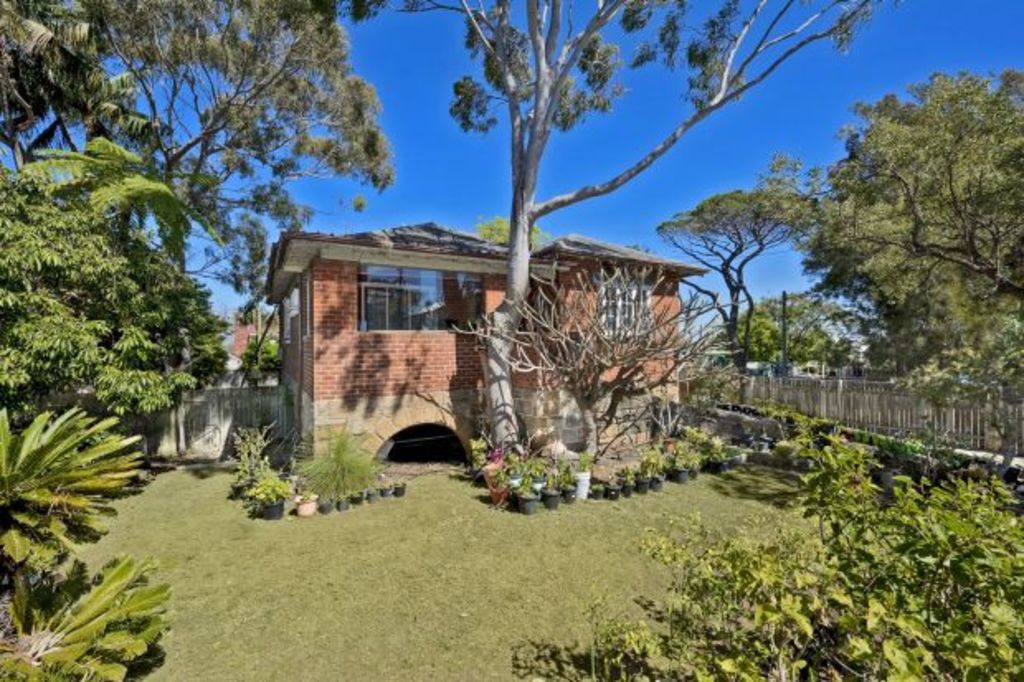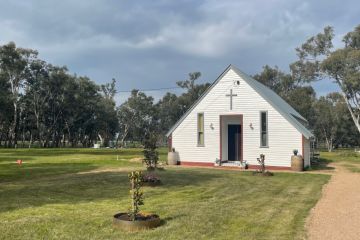To keep or sell? The tricky question of dividing up the family home as inheritance

It’s not uncommon for an inheritance to include property, but when it’s one property, split between many children, challenging decisions need to be made.
Whether to sell and then divide the money, or for one sibling to keep it and buy the others out, renting it out or renovating – it’s a decision fraught with difficulty.
For Simon Spencer, selling this four-bedroom home in Sydney’s Greenwich through Belle Property’s James Bennett marks the end of an era for his family.
And it was a tough decision to come to because of the emotional attachment to the house, which was passed from grandfather to father to the children over the past 100 years.
The home was build by Mr Spencer’s grandfather, and his father was born in the front bedroom in 1924. His grandparents had lived in the property until the mid-70s.
When his grandmother passed away, Mr Spencer’s father took up the opportunity to buy out his brother.
“While it would be lovely to keep it in the family, it’s not just one family now. There are other families involved,” he explained.
“It’s hard, but it’s the only way you can look at it, because it’s going to be worth a lot of money, and with its location, it’s going to benefit a lot of grandchildren.”
While Mr Spencer could stretch himself to buying out his other family members, he said he didn’t want to take that option.
“I’ve discussed it with my brother, and my sister’s girls – they are happy for it to be sold,” he said.
- Related: Why inheriting property can cause strife
- Related: Dealing with a deceased estate
- Related: Ins and outs of inheriting property
Deciding what to do with an inherited property
With younger generations relying on an inheritance to get into the property market, how to handle homes passed down through the family – and inherited as part of an estate by multiple beneficiaries – is a question bereaved families are frequently faced with.
There’s a lot to do when deciding to keep or sell – investigating tax implications, getting a professional valuation, and budgeting for the cost of upkeep.
The will
The first step is to look at the will. George Szabo, from Szabo Solicitors, said it all depends on the will, and if probate – the legal document that authorises an executor to manage the deceased’s estate – had been granted before taking the property to market.
“Before you can distribute the inheritance, the executor has to apply to the Supreme Court for the probate of the will,” he explained, referring to NSW. If there was no will left by the deceased, a Letter of Administration is granted instead, and in the case of no executor being named in the will an Administrator will be appointed. Applications in Victoria need to be made to the Victorian Supreme Court.
The will can be contested for up to a year, said Mr Szabo, so it might be better for the family to hold off selling until that period had passed.
“Wills are being contested more and more often, I’m finding”, Mr Szabo said. “It’s an area that’s becoming more common with blended families, or second or subsequent families.”
Andrew Heaven, a certified financial planner at AMP, said key to avoiding disputes was a clearly written will.
“Make sure there are no surprises in your will. Surprises or disappointments most often lead to litigation,” he explained. If someone thought their will might not provide the inheritance a family member expected, then it was best to be very clear in the will as to the reasons why those decisions were made.
To sell or keep
Once the inheritance has been formalised, the family needs to consider their options.
If the estate is worth enough that a property only comprises one-third of its value, then it can be split among three children with the property left intact. But if it’s the biggest or most valuable part of the inheritance, the only option might be for the executor to sell.
Mr Heaven said it was also important to establish whether the property would be capital gains tax exempt, as this could make selling a more attractive option and put a time limit on when it might need to be sold by.
The exemption depended on when the property had been bought, if it had been the deceased’s main residence, and if it would be sold and settled within two years of their death.
How to sell
Before selling it’s up to the executor of the will to decide whether or not the property should be renovated, said Paul Benson, another licensed financial planner.
“As the executor you’d want to understand what your obligations are to get the best price,” Mr Benson added. “You’d be better off going to open auction – put it out to market.”
The executor could use funds from the estate to pay for the renovation, said Mr Szabo, or draw on the sale proceeds if there wasn’t enough in the estate to cover them.
“But from a practical perspective”, he pointed out, “Most properties from estates are not renovated.”
Older inherited properties
Lara Nurpuri, from Slater and Gordon, said that in the case that the property had already been transferred to the inheritors, it was a very similar situation to when a standard property had multiple owners.
“One might want to sell due to personal circumstances, but they can’t go ahead and sell without the consent of the other owners,” she said.
There are methods of forcing a sale via the Supreme Court, but “given the costs involved with any kind of litigation, it’s the last resort,” she added.
Ms Nurpuri said that most wills now have clauses in them that allow executors to just sell the properties, which was the easiest option. And while the deceased might have preferred the property stay in the family, she said, it’s often a matter of what is most practical.
“You can’t rule from the grave,” she said.
We recommend
We thought you might like
States
Capital Cities
Capital Cities - Rentals
Popular Areas
Allhomes
More







